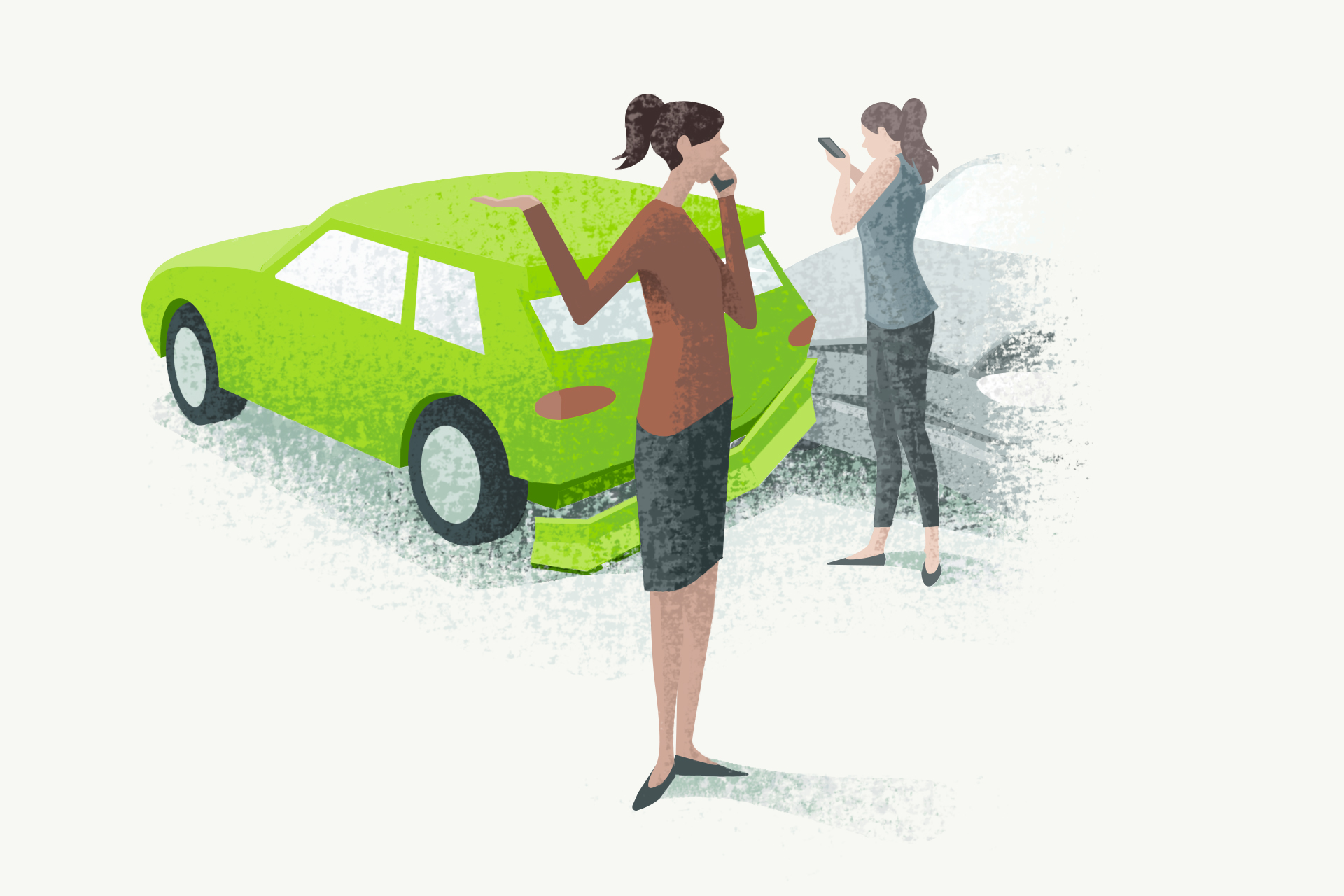Snap out of it: how to avoid highway hypnosis
September 29, 2022
The phrase “zoning out” may be something you’ve heard or even experienced. The moment where you’re doing something like sitting in class or watching a movie and you lose your sense of time and awareness for a brief moment.
Suddenly you snap out of it with a quick distraction or a hand waving in front of you with someone saying, “Hello! Is anyone there?”
If this has happened to you, you know
exactly what we’re talking about. But has it ever happened to you on the road? This phenomenon is known as highway hypnosis, and we’re here to share some insight into why we may zone out on the road and how you can help prevent it from happening.What is highway hypnosis, and why does it happen?
The term highway hypnosis may not be a familiar phrase you’ve heard in everyday chatter. What is it exactly?
According to
Healthline, it’s a phenomenon that may cause you to go into a trance-like state for a few seconds to even minutes. Here’s what that may look like from behind the wheel:You drive your local freeway with a sign stating you’re 20 miles to your exit, and the next thing you know, you’re blinking and realizing that you’ve missed your exit. You didn’t fall asleep behind the wheel, have an accident or crash—but what happened in those 20 miles that prevented you from turning at your exit?
Another example of highway hypnosis could occur during your commute in the city. You’re at a red light, and you realize you can’t remember the last several minutes of your drive—they are absent from your mind. Did you make certain turns? Did you follow the speed limit? You don’t know.
If you’re at a point in this article where you’re now having a “That’s happened to me!” moment, just realize that highway hypnosis is not uncommon and can happen to anyone. Deep breaths. If you’re also thinking, “How in the world does that happen?”, keep reading to find out.
Highway hypnosis and the brain
You can (mostly) blame your brain for zoning out on the road. We learned from Sean Meehan, a University of Michigan kinesiology professor, that when we lapse into highway hypnosis, we experience slowed brain activity. This means that different parts of the brain aren’t communicating with one another as quickly as when we’re fully conscious and aware.
You can compare it to brain activity when we sleep—which is why highway hypnosis is more likely to occur when we’re tired. As a result, our reaction time is slowed down.
Additionally, the brain system that controls your eye movement may play a part in highway hypnosis, says 2004 research published in the journal of Accident Analysis & Prevention. The research found that when you drive along a road that is either well known or unchanging (think monotonous highways), your brain begins to depend less on what you see and depends more on your mental prediction of what you’ll see.
In non-science terms, your brain switches to a less-alert mode and may pay less attention to visual stimuli—causing you to zone out while driving.
But before you assume that highway hypnosis happens randomly and without notice, think again. Let’s talk about the warning signs of highway hypnosis and how to prevent those signs from happening in the first place.
How to handle zoning out on the road
It’s true, you may not always realize you’re zoning out from behind the wheel until you’ve snapped out of it. Healthline tells us some key warning signs to pay attention to that may contribute to an impending highway hypnosis situation.
Sleepiness
Wandering thoughts or daydreaming
Loss of focus or concentration
A slowed reaction time
Heavy eyelids
Frequent blinking
A dull or dazed feeling
These are all signs that may lead to highway hypnosis and reminders of why it’s important to pay attention to your own body and mind while driving. If you ever feel these warnings during your commute, there are some things you can do to help get you back on track and focused on the road.
One idea you may want to consider is a caffeine boost. As we’ve talked about in our past article on caffeine and the brain, caffeine can help increase your alertness and focus. It can also be helpful to have something to sip to avoid a monotonous drive.
Another suggestion is to talk or sing while driving. If you have passengers in your car, stir up some conversation. Conversation is a great way to keep the brain engaged. And PS—it’s okay to talk to yourself.
Not in the mood for a chat? Listen to music and sing out your favorite songs that still leave you focused and in a flow state.
Last suggestion? Make environmental changes. When you start to notice those warning signs and highway hypnosis coming on, make some quick adjustments to shake it off. This could be as simple as rolling the window down, turning off cruise control, adjusting your seat to a more upright position or pulling over to a safe location to take a break.
If you’ve experienced highway hypnosis, it can be stressful to feel like you’ve completely forgotten a part of your drive. So what’s the fix? Let’s talk through what you can do before and during a drive that may help prevent highway hypnosis.
How to help prevent highway hypnosis
There will be times when you can’t avoid those long drives or the same-day, everyday commute. Healthline again shares three prevention practices you can do to try and avoid highway hypnosis from happening at all.
Try a new route. Shake things up a bit by changing up your route and trying a new way of getting to places. This could be driving through town instead of the highway or getting off a different exit.
Change up your eating habits. We’ve all had that “food coma” feeling, right? That feeling of tiredness and wanting to take a nap after a big meal. Well, one of the worst times to feel that is before hitting the road. Prevent it by eating lighter, healthier meals or snacks before driving.
Get enough sleep. Highway hypnosis is more common in tired drivers, so having enough sleep before a commute can help lower the likelihood of zoning out. How much sleep? Think at least seven hours of Zs each night.
With these three practices in play, you may have a better chance of avoiding highway hypnosis and staying more focused on the important things—like the road ahead.
Stay focused, get rewarded with HiRoad
Highway hypnosis is a form of distraction. It’s taking your mind away from the task at hand: driving safely from point A to B. At HiRoad, we understand that there are countless distractions that can take away our attention while driving—some may even be out of our control (hello, highway hypnosis).
In spite of those distractions, we know there are drivers who are committed to staying focused and distraction-free from behind the wheel. We love these kinds of drivers. They’re the do-gooders and mindful folks who want to help create a better world for everyone.
And at HiRoad, we’re an auto insurance company dedicated to recognizing those who do the mindful thing behind the wheel and rewarding them with savings. If you’re ready to take the high road and create a world where good things should be rewarded— it’s time to snap out of it and join us at HiRoad.
The information in this article was obtained from various sources not associated with HiRoad®. While we believe it to be reliable and accurate, we do not warrant the accuracy or reliability of the information. HiRoad is not responsible for, and does not endorse or approve, either implicitly or explicitly, the content of any third party sites that might be hyperlinked from this page. The information is not intended to replace manuals, instructions or information provided by a manufacturer or the advice of a qualified professional, or to affect coverage under any applicable insurance policy. These suggestions are not a complete list of every loss control measure. HiRoad makes no guarantees of results from use of this information.
Stay on the path
Want to compare auto insurance quotes faster?
You can save up to 50%* with HiRoad—but it’s always smart to shop around. Our free Quote Comparison Organizer makes it easy to compare insurance options in less time. Share your email and we'll send it to you.



